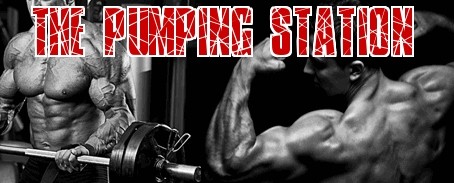Glutamine Benefits for Bodybuilding
Glutamine is the most abundant amino acid in the human body, constituting 60% of the total intracellular amino acid pool. It has the highest concentration in whole blood (500-900 uM) of all amino acids. The majority of glutamine is stored in the skeletal muscle, where its concentration is 30 times greater than the circulating level. In the basal state, skeletal muscle releases net amounts of glutamine, a process which accelerates during stress.
Glutamine's functions include (a) a precursor to the synthesis of proteins, (b) nitrogen donator for the synthesis of purines, pyrimidines, and nucleotides (constituents of RNA and DNA), (c) a nitrogen transporter between various tissues, (d) a substrate for the production of ammonia, and (e) a metabolic fuel source for cells of the immune and gastrointestinal system.
Glutamine is classified as a nonessential amino acid, which means the body is able to synthesize it. Therefore, we do not need to obtain glutamine from food sources in order to survive. There is no RDA (recommended daily allowance) for glutamine.
As you can see glutamine is pretty important when it comes bodily functions. It's importance is fully realized when the body is placed under stress. When you train with heavy weights you undergo a metabolic condition known as acidosis. This acidosis is then countered by glutamine in the kidneys, (which incidentally comes from muscle tissue). In a recent study in the Canadian Journal of Applied Physiology touted the importance of glutamine for use by athletes engaged in heavy exercise training for the maintenance of muscle mass. Most heavy exercise results in decreased plasma glutamine levels. In this same study, it was also demonstrated that athletes who engaged in heavy training and did not supplement with glutamine exhibit lower resting levels of plasma glutamine. Glutamine has been shown to improve nitrogen balance, increase protein synthesis, and decrease 3-methylhistidine excretion. This possibly means faster recovery, along with faster muscle growth. In fact it has been found that in patients with varying degrees of trauma or injury, glutamine supplemented both orally or via TPN (intravenously) maintained muscular glutamine concentrations, improved nitrogen balance, increased protein synthesis, decreased 3-methylhistidine excretion (a marker of muscle catabolism), avoided trauma related intestinal atrophy, improved weight gain in non hematological patients, and reduced the length of hospital stay. It has also been shown that in athletes undergoing strenuous exercise, glutamine may decrease the risk of infections by up to 32% and be a useful indicator of an overtrained state it is hypothesized that glutamine helps perform these anabolic and anticatabolic functions by increasing cellular hydration and acting as a vital substrate to various cells.
Another facet of glutamine is the fact that glutamine supplementation leads to an increase of blood glucose, and yet does not affect levels of the glucose regulating hormones insulin or glucagon. This makes glutamine very effective when used in conjunction with a timed carb diet (Animalbolics) or a ketogenic (no carb) diet.
Some other positive attributes of glutamine include glutamine increasing gut mucosal integrity and intestinal functioning. This means that the food we eat may be better absorbed while supplementing glutamine. Studies have also shown that glutamine has been shown to stimulate the accumulation of muscle glycogen in rats. This could mean that endurance athletes may have an advantage when supplementing glutamine.
I would recommend taking 20-25 grams daily, perhaps taking one teaspoon 4-5 times daily. One teaspoon of glutamine equals roughly 5 grams, and glutamine can easily be mixed with water. Glutamine is tasteless.
If you are interested in increasing performance, muscle mass, or decreasing recovery time (and who isn't!!) I would highly recommend this supplement. It gets my full approval.
For more information go to Nitrobol Bodybuilding Amino Acids
References
1. Glutamine Nutrition: Theoretical considerations and therapeutic impact by Souba, W., Herskowitz, K., Austgen, T., Chen, M., and Salloum, R.
2. Potential role for glutamine supplementation in nutrition support. Clinical Nutrition by Ziegler, T. R., Smith, R. J., Byrne, T. A., & Wilmore, D. W.
3. The emerging role of glutamine as an indicator of exercise stress and overtraining. Sports Medicine, 21 by Rowbottom, D. G., Keast, D., & Morton, A. R.
4. Glutamine physiology, biochemistry and nutrition in critical illness by Souba, W. W.
5. The role of glutamine in human carbohydrate metabolism in kidney and other tissues. Kidney Int. 55:3 778-92, Mar. 1999. by Stumvoll M., Perriello G, Meyer C, Gerich J.
6. Glutamine, Exercise and Immune Function. Links and Possible Mechanisms. Sports Med 26: 3, 177-99, Sep, 1998 by Walsh NP, Blannin AK, Robson PJ, Gleeson M
Click Here to Sign Up for Your Free Bodybuilding Magazine Subscription
